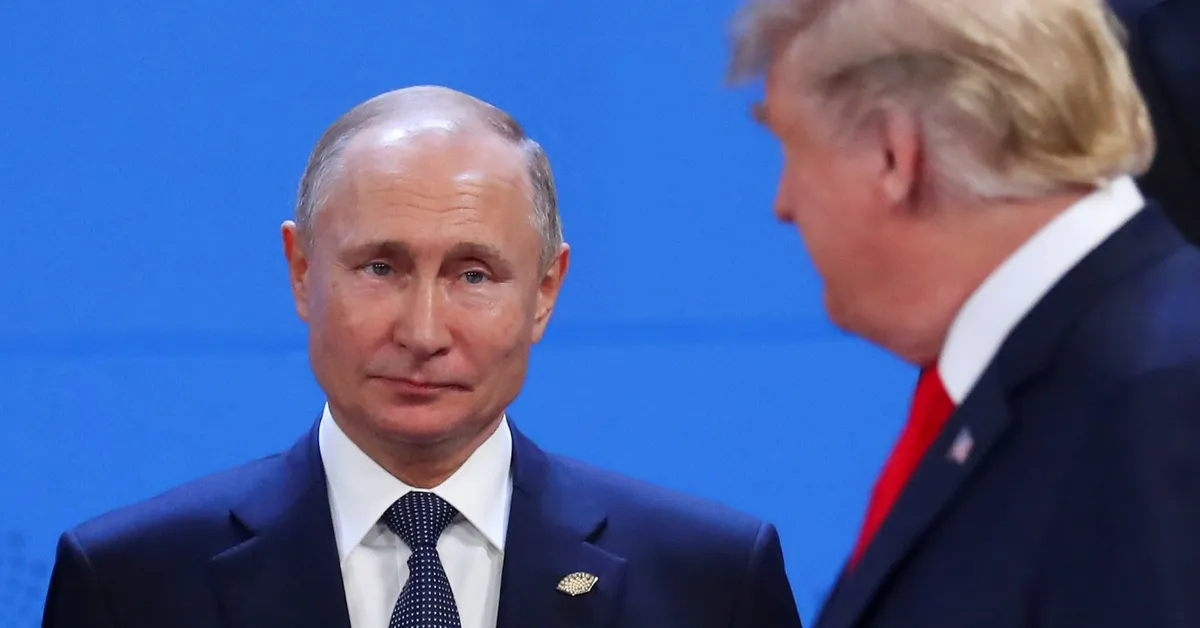
On May 19, 2023, U.S. President Donald Trump is scheduled to engage in a significant conversation with Russian President Vladimir Putin regarding the pressing issue of peace in Ukraine. This dialogue comes as European leaders are intensifying their calls for the Kremlin to agree to an immediate ceasefire, aimed at curtailing the deadliest conflict in the region since World War Two.
In February 2022, President Putin ordered thousands of troops into Ukraine, setting off the most severe confrontation between Russia and the West since the Cuban Missile Crisis of 1962. As the conflict rages on, Trump has been vocal about his desire to be remembered as a peacemaker. He has consistently advocated for an end to the violence in Ukraine, framing it as a proxy war between the United States and Russia.
Under pressure from Trump, representatives from Ukraine and Russia convened last week in Istanbul for their first meeting since March 2022. This meeting followed Putin's proposal for direct discussions and comes amidst demands from both European leaders and Ukraine for an immediate ceasefire. The upcoming call between Trump and Putin is expected to focus on halting the ongoing bloodshed, which currently claims the lives of more than 5,000 Russian and Ukrainian soldiers weekly, as well as addressing trade issues.
In a post on his Truth Social platform, Trump expressed hope for a productive conversation, stating, "Hopefully it will be a productive day, a ceasefire will take place, and this very violent war, a war that should have never happened, will end." He indicated that he would also reach out to Ukrainian President Volodymyr Zelenskiy and various NATO members following his discussion with Putin.
Despite international pressure, President Putin has remained steadfast in his demands for ending the war. Currently, Russian forces control approximately one-fifth of Ukraine's territory and continue to advance. On Sunday, the Kremlin launched its largest drone assault on Ukraine since the onset of the conflict. Reports from Ukraine’s intelligence service suggest that Moscow may also be preparing to launch an intercontinental ballistic missile, although this has not been confirmed by Russian authorities.
On June 2024, Putin has stated that Ukraine must officially renounce its NATO aspirations and withdraw its military from the regions Russia claims. In a recent discussion, British Prime Minister Keir Starmer conferred with leaders from the United States, Italy, France, and Germany about the war. French President Emmanuel Macron emphasized on social media the necessity for Putin to demonstrate a commitment to peace by accepting a proposed 30-day unconditional ceasefire, which has garnered backing from both Ukraine and European leaders.
Despite these discussions, there are widespread concerns among European leaders that Putin may not be earnest about achieving peace. Many fear that Trump might pressure Ukraine into accepting a punitive peace deal that could strip it of significant territory and fail to establish strong security assurances against future Russian aggression.
The ongoing invasion has been characterized by U.S. President Joe Biden and Western European leaders as an imperialist land grab, with a commitment to defeat Russian forces that they argue could threaten NATO in the future. Conversely, Putin perceives the war as a pivotal moment in Moscow's relations with the West, alleging that the West has humiliated Russia since the 1991 collapse of the Soviet Union by expanding NATO and infringing upon Russia's perceived sphere of influence, which includes Ukraine.
As the situation unfolds, the world watches closely to see whether Trump's upcoming call with Putin will pave the way for a lasting peace in Ukraine or if the conflict will continue to escalate.